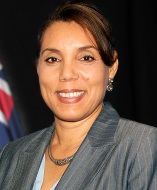Archive for August, 2014

Orientation set for kids attending new schools
 (CNS) Updated Thursday: All primary schools will be open for all students on Tuesday 26 August.Orientation at all government primary schools, which takes place the day before on Monday 25 August is for new students only and they must be accompanied by a parent or guardian. (See updated attachment below). In the wake of significant concerns about behaviour in government schools among students, the ministry will be under the spotlight more than ever before this school year. Parents will also be watching closely to see what new policies will be implemented and how far the new minister will go with proposals to privatize the system.
(CNS) Updated Thursday: All primary schools will be open for all students on Tuesday 26 August.Orientation at all government primary schools, which takes place the day before on Monday 25 August is for new students only and they must be accompanied by a parent or guardian. (See updated attachment below). In the wake of significant concerns about behaviour in government schools among students, the ministry will be under the spotlight more than ever before this school year. Parents will also be watching closely to see what new policies will be implemented and how far the new minister will go with proposals to privatize the system.

Financial firm sues employee over leak
(CNS): Citco Trustees (Cayman) Limited is taking legal action against one of its employee. The financial firm claims the worker, who was employed as a trust and corporate officer had access to information which was confidential to the offshore firm and its customers. But in legal documents filed in the Cayman Islands Grand Court the company states that sometime in December last year and again last month Reynaldo Beluso posted confidential information about a client. The law suit doesn’t name the client or give details about what was posted or where it was published and has asked the court to keep the file closed. However, Citco is seeking unspecified damages from Beluso and an injunction restraining him from leaking any more information.
In the suit filed in the court by local attorneys Samson and McGrath on 1 August, Citco states that it has suffered loss and damage but the full particulars will be provided separately.
It appears that Beluso has not yet been fired from his post, despite the claim by his bosses that he has broken the agreed confidentiality arrangement that went with the job.

Governor has no CIG card
 (CNS): As the scandal over the use of government credit card continues, an FOI request by CNS to all government entities has revealed so far that the governor does not have a credit card issued by the Cayman Islands Government. However, the Cayman tax payer still foots the bill for the UK representative’s entertainment and some of her travel bills, depending on her reason for travel. Officials from the governor’s office confirmed, however, that Helen Kilpatrick is following the new official travel policy when travelling on local government business and the FCO policy when the British government is funding her trips.
(CNS): As the scandal over the use of government credit card continues, an FOI request by CNS to all government entities has revealed so far that the governor does not have a credit card issued by the Cayman Islands Government. However, the Cayman tax payer still foots the bill for the UK representative’s entertainment and some of her travel bills, depending on her reason for travel. Officials from the governor’s office confirmed, however, that Helen Kilpatrick is following the new official travel policy when travelling on local government business and the FCO policy when the British government is funding her trips.
The office explained that Governor Helen Kilpatrick has a set budget for expenditure for her office and Government House but the governor very rarely incurs any extra local expenditure personally and would only do so if a VIP guest is visiting the Cayman Islands and a function is not hosted at Government House for logistical reasons.
A spokesperson said that this had happened no more than three times over the past several years.
As well as not having a government credit card, the governor does not have an expense account as official entertainment is for the most part conducted at Government House and costs are always kept within the budget allotted to hospitality for the specific financial year.
When the governor is required to travel on official Cayman Islands business, an official travel form is completed and approved by the chief financial officer overseeing the governor’s office budget and a per diem allowance, according to the official guidelines, is given.
Officials also confirmed that the governor’s office account has been audited periodically as part of those conducted under the Portfolio of Internal External Affairs and more recently since the changes to official ministries and portfolios under the Portfolio of the Civil Service.
The governor’s allocation for managing Government House falls under the budget for the head of the civil service under CIV 11. This year the running of the residence, the coordination of functions, as well as the administrative and accommodation costs for the Foreign and Commonwealth Office (FCO) staff in the Governor’s Office amounted to $770,884, a fraction less than the 2013/14 budget, which was $788,739.
This is in addition to the salary and benefits paid to the governor, which is a figure not readily available. According to the most recent civil service pay scale guide from 2011, the governor’s earnings fall somewhere between $160,020 and $176,628 per annum plus pension and health benefits. However, Kilpatrick may be earning considerably more. According to UK records, when she left her post as Director General at the Home Office she was earning between £180,000 and 184,999 per year, equal to more than CI$250,000.
In the budget document for 2014/15 Kilpatrick’s pay is part of a budget allocation which covers the salaryand benefits of the Governor, the Premier, the Deputy Premier, the Speaker of the Legislative Assembly, all the Ministers, as well as Elected Members of the Legislative Assembly which totals over $3.25million.
See related story on CNS: Credit card scandal rolls on

Caymanian killed in Panama jail house ‘accident’
 (CNS): The family of a local man killed in a Panama jail have hired a lawyer to look into the circumstances surrounding his death. Mark Bodden, who had been arrested in Panama on drug charges in 2011, was expected to return home to the Cayman Islands later this year but UK officials confirmed that he died on Monday afternoon. Bodden’s family told the local television news that they understood that the 37-year-old man had ‘fallen from his bunk’, lay bleeding after hitting his head on the floor, and then suffered several seizures before medics arrived hours after the alleged accident.
(CNS): The family of a local man killed in a Panama jail have hired a lawyer to look into the circumstances surrounding his death. Mark Bodden, who had been arrested in Panama on drug charges in 2011, was expected to return home to the Cayman Islands later this year but UK officials confirmed that he died on Monday afternoon. Bodden’s family told the local television news that they understood that the 37-year-old man had ‘fallen from his bunk’, lay bleeding after hitting his head on the floor, and then suffered several seizures before medics arrived hours after the alleged accident.
The British Embassy in Panama had notified the Cayman authorities of Bodden’s death but the circumstances had not been confirmed. The deputy governor said they were advised by the family that it was said to be accidental.

“We are now awaiting the results of the prison and police investigation. Our thoughts and prayers are with his family,” he said in a statement.
Bodden’s family, who is now working to bring his body back to Cayman, told Cayman 27 they have hired a lawyer to find out exactly what happened to their loved one.
At some point during his time in the Panama prison Bodden had access to a smart phone and posted pictures of the conditions inside the Central American jail on his Facebook page.

Schools’ results celebrated
(CNS): Preliminary results for this year’s external exams indicate that the Year 12 students have surpassed last year’s record breaking Level 2 pass rate, continuing the year-on-year improvements in standards, and while the final tally is not yet known, Year 11 pass rates have also bettered last year's. In addition, there has been a dramatic improvement in literacy and numeracy in primary schools, teachers were told by Chief Education Officer Shirley Wahler at the Annual Education Professionals' Welcome on Wednesday. However, despite all the indications that the education system is on the right path, in her address to staff Education Minister Tara Rivers noted that both she and the ministry counsellor, who were both backed by the Coalition for Cayman (C4C) group, were still considering privatizing government schools.
Rivers noted that she and Winston Connolly were elected on the principle of public-private partnerships and were continuing to explore the possibility of adopting it in regards to public schools. The minister also announced that there are to be baseline inspections in every government school over the course of the next year.
Celebrating the continued upward trajectory of external exam results, CEO Shirley Wahler told teachers gathered at the Mary Miller Hall for the welcome back event that results for English Level 2 pass rate for the graduating students, “which were so spectacularly high last year”, are even higher, with a preliminary result of 68.5%. But, she said, “the real story” was the mathematics results, which have jumped more than 9% over last year’s figures to 46.1%. (See CNS article Numeracy focus in schools)
Pointing to the startling improvements in results in just two years (from 2011 to 2013) from 45% to 70% of students achieving five or more Level 2 passes, the CEO said that level of change took England 13 years to achieve. “The comparison to our Caribbean neighbours is even starker,” Wahler said, noting that the overall benchmark figure for the Caribbean region hovers around 22%. “And our journey is by no means over,” she added.
Before all the results are in, it appears that Year 11 students have once again done well in English and maths results “have shown a significant surge” over last year. For both Year 11 and Year 12 students, Wahler said, the new graduation requirements, which include academic and behaviour criteria, had a “pronounced influence”.
As well as a sustained year-on-year rise in high school results, Wahler said the percentage of Year 6 students who achieved National Curriculum Level 4 “shot up” this year. Reading results were up 21%, writing results were up 13%, and maths results rose by 8%.
“In real terms, this means that the standard of achievement in secondary schools can reasonably be expected to continue improving as well, with Year 7 students coming in with significantly higher levels of achievement than in past years. All of this translates to continued and sustainable success,” the CEO said.
Dismissing “the relentless rhetoric” about Cayman’s “failing schools”, the CEO told teaching staff she was proud of them “and proud to give testimony today to the amazing results you have achieved and continue to achieve as you guide and develop our country’s most precious resource, its children.”
Looking back, Wahler said that for more than a decade before 2007 student results had been stagnant, with only about a quarter of students who finished high school achieving 5 or more O-Level passes. Going back further in time, she noted that the 1995 Annual Report for the Cayman Islands boasted about the historic high performance of students, when 25% of Year 12 students had gained 4 or more passes, “far outstripping the previous high point of 16%, and lauded as the best results in the Caribbean”.
However, she said that “visionary leaders who believed that we could do better, and who refused to remain complacent” spearheaded the turnaround. “It is through that leadership that the process of education reform was undertaken and sustained through successive administrations,” she said. Most importantly, the reforms were about “valuing every student as an individual who has a place in oursystem and offering opportunities for every child to succeed, not just a chosen few,” she added.
“It is important that our students know, that our parents know and that our community know and understand what you, our teachers, through the performance of your students, have achieved,” the teachers were told by their boss.
Turing to the issue of student behavior, an issue that has been the subject of considerable attention recently, she said that overcoming poor behavior would take hard and consistent work on the part of educators. “It requires the engagement of every school and every teacher,” she said.
“But we cannot do this alone,” the chief education officer told teachers. “Every stakeholder in education, which means everyone in our wider community, has a part to play. Public education is a public good and our work serves not just today’s students but the country as a whole. This is a project for the entire community.”
But she said the Department of Education Services would be publishing policies and procedures to provide clear and accessible guidance on how to submit and manage complaints and grievances “in a positive and mutually respectful manner that allows us to work together to improve our system. In this way, we create avenues for problems to be resolved in ways that move the system forward, model professional and productive behaviour and ensure that concerns are heard.”

Mentors wanted to help kids ‘Aim Higher’
 (CNS): Organised by the Cayman Islands branch of the International Women's Insolvency and Restructuring Confederation and local consultants Shirlaws Cayman, ‘Aim Higher’ is looking for 40 adult volunteers for this forthcoming school year to mentor teens attending John Gray High School. Mentors are needed to work at the school one lunch time per week one on one with students aged 15 and 16 to help them realize their full potential starting on 16 September. Mentors will coach support the young people through their school life including exam preparations and developing study skills techniques.
(CNS): Organised by the Cayman Islands branch of the International Women's Insolvency and Restructuring Confederation and local consultants Shirlaws Cayman, ‘Aim Higher’ is looking for 40 adult volunteers for this forthcoming school year to mentor teens attending John Gray High School. Mentors are needed to work at the school one lunch time per week one on one with students aged 15 and 16 to help them realize their full potential starting on 16 September. Mentors will coach support the young people through their school life including exam preparations and developing study skills techniques.
IWIRC is a not for profit professional women's organisation which has a mandate to get involved in the community and education is a particular focus. “We are proud to support the JGHS Aim Higher initiative through the mentoring program by organising and financially underwriting the training and follow up throughout the year,” said Laura Hatfield from the Cayman branch.
Shirlaws Cayman are also a partner in the programme as they will be conducting the training for both mentors and students to introduce them to the nature of the coaching relationship and develop the skills and qualities that will enable them to make a difference. Aside from committing to the weekly lunchtime sessions volunteers will need to commit to attending the four free training sessions. Students will receive their training during the first week of term before the mentoring starts.
Training for mentors is scheduled over two weekends in August and September starting on Friday 29 August 5.30pm – 8.30 pm then Saturday 30 August 9am – 1pm and the same times the following week of the 5&6 September. It will take place at the Cayman Islands Law School on the 3rd floor of the former Cayman National Bank building in George Town, opposite the main Court House between the clock tower and the post office. Mentors will also need a police clearance certificate.
Anyone who is interested in the programme and can to commit to the lunchtime mentoring sessions and the training is asked to contact LHatfield@solomonharris.com or KWilliams@solomonharris.com

Downed CUC pole causes traffic diversion
(CNS): The RCIPS issued a warning to drivers around 2-30 this afternoon following a collision in the Spotts, Newlands area. Traffic was being diverted after CUC crews were called to the location to repair a pole struck in a traffic smash. Police said that while the emergency repairs were being carried out traffic proceeding east on Spotts Straight will have to be diverted through Spotts-Newlands onto the East-West Arterial and west bound traffic in Savannah will be diverted onto Hirst Road and the East-West Arterial. An RCIPS spokesperson said work was expected to last approximately two hours.

Robbers strike at popular bar
 (CNS): The police are on the hunt for two armed suspects who held up staff and customers at gunpoint at a bar in Grand Harbour, Red Bay on Tuesday night. An RCIPS spokesperson who confirmed the robbery in a release at around 2pm on Wednesday said officers are appealing for witnesses to the heist in which an undisclosed sum of cash was taken from the bar and customers along with other personal items. The robbery happened shortly before 11pm last night at the outside bar at Beaches in Grand Harbour. Police said that the two men were both armed with what appeared to be silver coloured handguns and the made off with the stolen loot on foot. Anyone in the area at the time or who saw anything suspicious is encouraged to call detectives on 949 4222 or Crime Stoppers on 800 8477(TIPS).
(CNS): The police are on the hunt for two armed suspects who held up staff and customers at gunpoint at a bar in Grand Harbour, Red Bay on Tuesday night. An RCIPS spokesperson who confirmed the robbery in a release at around 2pm on Wednesday said officers are appealing for witnesses to the heist in which an undisclosed sum of cash was taken from the bar and customers along with other personal items. The robbery happened shortly before 11pm last night at the outside bar at Beaches in Grand Harbour. Police said that the two men were both armed with what appeared to be silver coloured handguns and the made off with the stolen loot on foot. Anyone in the area at the time or who saw anything suspicious is encouraged to call detectives on 949 4222 or Crime Stoppers on 800 8477(TIPS).

HSA slims down by almost 80lbs in fitness challenge
(CNS): Nineteen staff members from the Health Services Authority have collectively lost 79.8 lbs, 28.5 inches in waist circumference and 12.7% of body fat following a workplace wellness programme over the last three months. The 90 day diet and fitness regime -‘Take the Challenge – Be Fit: Stay Healthy’ was about improving the health of those working in the sector and participants earned points for completing exercise logs, achieving stress management goals and accomplishing physical activity goals, as well as losing weight and lowering their body mass index (BMI). The HSA’s CEO, Lizzette Yearwood, said the positive outcome was a good reason to continue the programme.
“The success of our 2014 programme has galvanised us into ensuring we continue,” Yearwood said. “Study after study indicates that chronic non-communicable diseases such as cancer, heart disease, strokes and high blood pressure can be alleviated by maintaining a healthy weight and following a healthy lifestyle. The prevention of chronic non-communicable diseases is also the focus of this year’s Cayman Islands Healthcare Conference this coming November,” she said.
“We have made it a priority to encourage our own staff to live as healthy a lifestyle as possible and to reduce their risk of developing such diseases. I congratulate our staff for committing to and finishing the programme,” the hospital boss added.
Ann-Marie Webb came in 1st in the challenge followed by Debbie Harding in 2nd while Joy Merren and Oscar Calidonio tied for 3rd.
Dr Kiran Kumar, Medical Officer of Health, said he was pleased with the results of those who managed to complete the full programme and many did so using the buddy system to keep them motivated, a key strategy for success. Praising the winners he said, they had achieved remarkable results demonstrating that with determination and will-power, a healthy weight and lifestyle can be achieved
“For the group as a whole, their good cholesterol increased, bad cholesterol decreased and their blood pressure went down following the completion of the programme, all positive indicators that they have made an improvement to their health,” he said
The participants who completed the programme saw a combined total of 79.8 lbs reduction in weight that resulted in an impressive overall reduction of 28.5 inches in waist circumference for the group and an overall 12.7% reduction in body fat.
Prizes for the 2014 Be Fit: Stay Health Workplace Wellness programme were sponsored by the following companies, all dedicated to improving health in the workplace: CUC, Vigoro Nursery, The Westin Grand Cayman Seven Mile Beach Resort, Morritt’s Tortuga Club & Resort and Fosters Food Fair IGA. Alongside the HSA, other authorities and organisations have also followed this programme, which was spearheaded by the Public Health Department. This includes: Government Information Services, Auditor General’s Office, Shipping Registry, Maritime Authority, Ministry of Health, and Ministry of Finance and Deloitte.
For more information about the programme please contact the Public Health programme coordinator Therese Prehay at 244-2632 or please visit www.hsa.ky

Rodrigues to wield CS axe
 (CNS): The chief officer from the education and employment ministry will be heading up a new civil service unit which will be responsible for cutting the civil service. Mary Rodrigues will head the unit charged with overseeing the implementation of the Ernst and Young report on the rationalisation of the public service. Recently embroiled in a ministry scandal over the altering of an education report, the CS boss is likely to face even more controversy in her new job. Officials said the new post will include overseeing and monitoring the implementation of the Cabinet-approved recommendations from the EY report, briefing Cabinet on the outcomes and overseeing communications with all stakeholders.
(CNS): The chief officer from the education and employment ministry will be heading up a new civil service unit which will be responsible for cutting the civil service. Mary Rodrigues will head the unit charged with overseeing the implementation of the Ernst and Young report on the rationalisation of the public service. Recently embroiled in a ministry scandal over the altering of an education report, the CS boss is likely to face even more controversy in her new job. Officials said the new post will include overseeing and monitoring the implementation of the Cabinet-approved recommendations from the EY report, briefing Cabinet on the outcomes and overseeing communications with all stakeholders.
Rodrigues will be the senior staff member in a team that will include an additional three to four existing civil servants seconded from other agencies. Rodrigues will be expected to develop the policies and procedures that will guide the work of the unit, which officials have said they expect will take some years to implement.
Government has still not released any details regarding the EY findings and recommendations to help downsize the civil service but the premier and deputy governor have both spoken about consolidation or merging of departments, part privatization and complete sell-offs but so far no public authorities have been identified as the first to undergo what may prove to be radical change in the civil service and government.
As the person now designated as the leader of the forthcoming changes, Rodrigues will be tasked with revealing where and when the changes will begin. As she is understood to be taking up the post immediately, the current deputy chief officer in the ministry of education, Christen Suckoo, will assume the role of acting chief officer.
Announcing the appointment on Wednesday morning in a release, the deputy governor highlighted the importance of the new job.
“The rationalisation project is perhaps one of the most important projects undertaken by the Civil Service in the last decade and extremely important to the future direction of the civil service,” Franz Manderson stated. “For it to succeed there needs to be strong leadership and expertise. Given this, I am most pleased to have a civil servant of Ms Rodrigues’s calibre and background leading the implementation team.”
Manderson also said Rodrigues had made significant contributions to the Ministry of Education, Employment and Gender Affairs over the five years she held the post. He said during her tenure there has been a remarkable improvement in external exam results for high school students. He also pointed to the restructuring of secondary education which was undertaken during her watch, when the Year 12 programme at CIFEC was introduced. New graduation criteria have also been developed and implemented, including academic requirements for the first time.
The deputy governor also spoke about strategies to tackle under-performance in literacy and numeracy having been introduced and the first National Professional Standards for Teachers and for Principals while she was the ministry boss. In addition, Rodrigues oversaw the re-introduction of Reception in government schools, along with the first National Curriculum Framework for Early Years. Rodrigues was at the helm when the ministry established the National Work Force Development Agency and the Passport to Success Programme. She was also credited with playing a key role in the establishment of the Civil Service College.
Rodrigues joined the Civil Service in 1986 and taught for 10 years before moving to the then- Schools Inspectorate, where she became chief inspector within four years. She held this position until 2004, when she joined the Ministry of Education as deputy permanent secretary. Two years later she was named chief officer designate in the Portfolio of the Civil Service—succeeding to the role of chief officer in 2008. She became chief officer in the Ministry of Education in 2009.